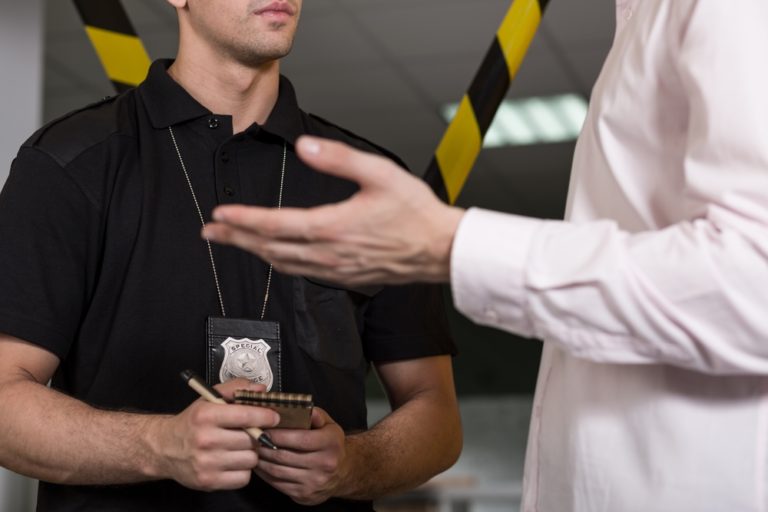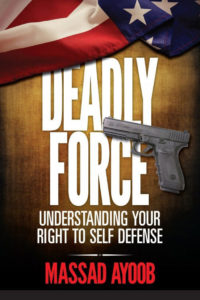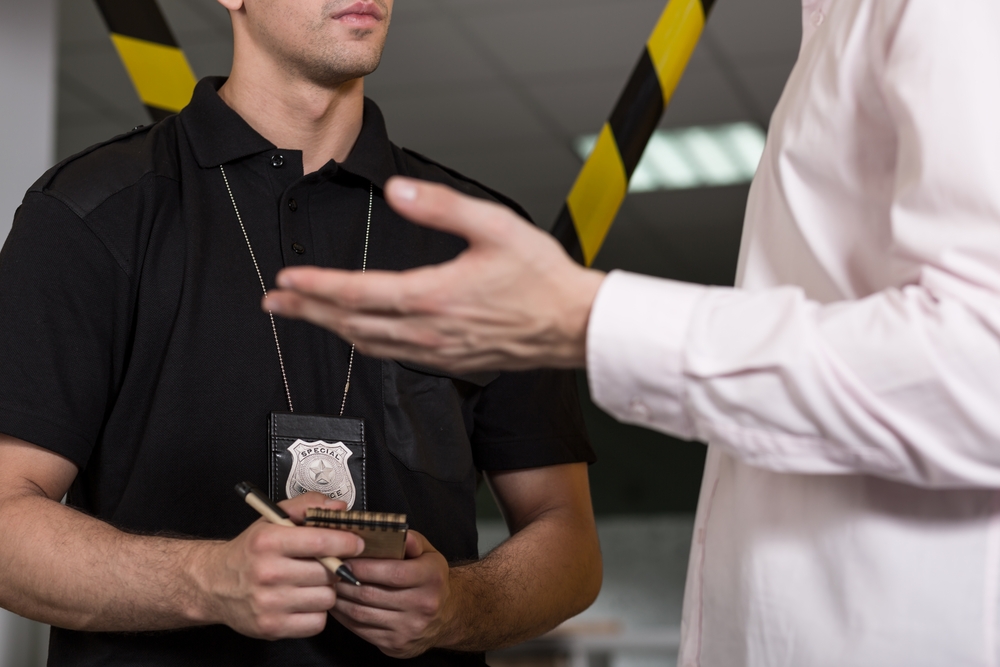
Witnesses to a defensive gun use can work for or against you, which only strengthens the case for giving the proper information to responding authorities.
In Part 1 and Part 2 of this concealed carry series, I explained the rationale behind giving responding police officers a very brief statement after a self-defense shooting, then waiting for your attorney before giving a formal statement. There may very well be others on the scene that can and will give responding officers an explanation of what they believe occurred.
If other witnesses hear and see the shooting, you may heave a sigh of relief and think, “I don’t have to risk telling the responding police anything, because others will tell the police what happened.”
This brings up two problems. The worst arises if the witnesses lie. Perhaps police interview witnesses who include the person you shot or his accomplices. They were committing a crime, most likely a violent felony, and if the one you shot dies, the others could be convicted of felony murder. Do you honestly think they are going to confess to the police that they were part of a robbery team? Not likely.
Instead, their lies will be long, loud and abundant, and at trial you must convince the jury that one, two or three other people who say that you just pulled your pistol and started blasting away are, in fact, lying.
The stories these witnesses tell will likely be the same, rehearsed many times, perhaps even with the aid of the prosecutor. Prosecutors don’t like to lose, and in fact, if they lose too many cases, they may also lose the prosecutor’s position. So, the prosecution will pull out all the stops to convict you, and if that means helping the witnesses communicate better with the jury, expect them to do so.

In the end, because you decided to follow the advice of lawyers, who defend real criminals, by remaining silent and demanding to talk to your attorney, you face a trial in which you desperately need to prove that the people the prosecution and their witnesses paint as poor suffering victims were actually committing a crime against you.
The witnesses extend well beyond those present at the scene. You can be sure the doctor that performed the surgery on the guy you shot will be at your trial to describe every excruciating detail of the injury you inflicted. If your assailant dies, the Medical Examiner or forensic pathologist will go to the witness stand to give the same testimony.
It can get even worse. Perhaps there were independent witnesses who saw what happened. “You’re saved!” your friends and family may cry. Not necessarily. What the witnesses saw or heard is not necessarily what actually happened. Witness dynamics is a fascinating subject in and of itself, and one you should study up on.
Witnesses’ observations and experiences will be filtered by many variables. Distance, lighting, ambient sound and even their own physical limitations in eyesight and hearing will come into play when they give their honest, independent account of what they saw or heard. And these simple physical limitations are nothing compared to the filter of social or political biases that also might be present.
An independent witness or two provides no guarantee that the truth will come out at trial. Those witnesses may be unavailable, may have moved away between the time of your arrest and trial or may for their own reasons make themselves inaccessible. It happens, especially if the witness might be related either through blood or social strata with the criminal suspects. In other words, when asked by the police what they saw, they told the truth, but by the time your trial gets underway, they are nowhere to be found. It happens all the time. Still, it can get even worse.
Evidence Overlooked
Because you never told the cops the dead guy attacked you first, they felt no driving concern to search out evidence at the shooting scene that might support that version of events. Lost is evidence, let’s say, of a knife or even another shiny object that could reasonably be mistaken for a knife that perhaps the assailant threw in the bushes after you shot him. Later, one of his buddies may sneak back and retrieve it before your attorney shows up bleary eyed at the jail to advise you while you tell the police what happened.
Do you think a jury will believe you when you say a guy threatened you with a knife when there is no knife to be found?
Wouldn’t it have been much better to tell the police succinctly that you were attacked, that the man lying on the ground placed your life in danger, and you were forced to shoot to save your life?
Or that others standing nearby saw what happened? And that after falling down, the assailant threw the knife in those bushes—just as you point to the clump of bushes 30 feet away? Maybe, just maybe, the police will consider the idea that you were justified in shooting, and they will investigate and document all the pertinent facts surrounding the incident. Wouldn’t that be nice?
Be sure to read Part 1 and Part 2, if you haven't done so already.

Next Step: Get your FREE Printable Target Pack
Enhance your shooting precision with our 62 MOA Targets, perfect for rifles and handguns. Crafted in collaboration with Storm Tactical for accuracy and versatility.
Subscribe to the Gun Digest email newsletter and get your downloadable target pack sent straight to your inbox. Stay updated with the latest firearms info in the industry.


![Best Concealed Carry Guns In 2025 [Field Tested] Wilson Combat EDC X9S 1](https://gundigest.com/wp-content/uploads/Wilson-Combat-EDC-X9S-1-324x160.jpg)


![Best 9mm Carbine: Affordable PCCs [Tested] Ruger Carbine Shooting](https://gundigest.com/wp-content/uploads/Ruger-Carbine-Shooting-100x70.jpg)
![Best AR-15: Top Options Available Today [Field Tested] Harrington and Richardson PSA XM177E2 feature](https://gundigest.com/wp-content/uploads/Harrington-and-Richardson-PSA-XM177E2-feature-100x70.jpg)

The series was pretty good in the abstract, I tell military people when they’re announcing abbreviated conditions for getting their CCWs that they ought to take the classes regardless of the requirements, there’s good to know law provided in the training (I think there’s a lot of people that think somebody can be shot for simple property crime for example). But I think in the era of politically motivated prosecutions, particularly if it’s a white (or worse, a white cop) shooting a minority, verbosity might not be the best advise. Certainly a situational awareness of what’s going on your state would be critical, and cops are not neutral parties in the era of hyper politicization of everything – you can see that when police chiefs make political statements at press briefings concerning gun rights.